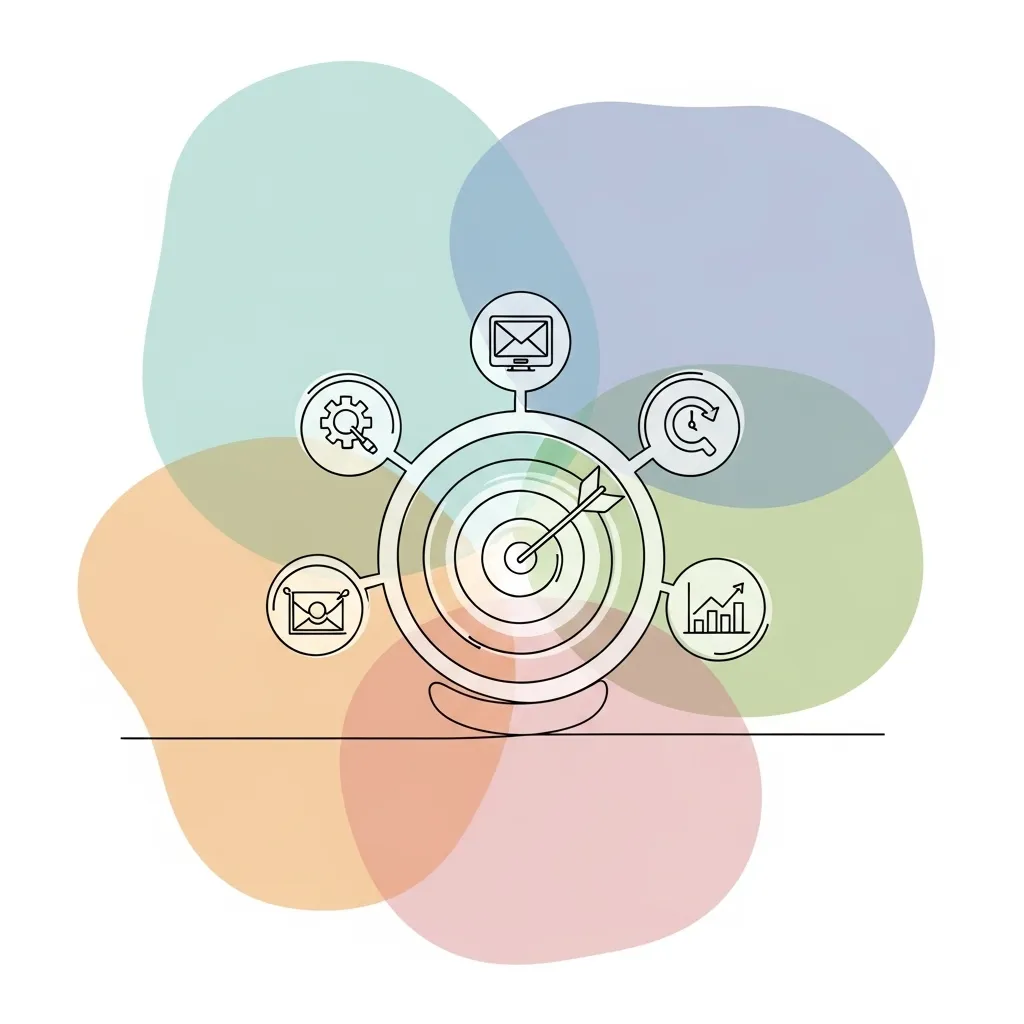Using the SMART Framework to Set Achievable Career Goals

Using the SMART Framework to Set Achievable Career Goals
Setting clear career goals is the foundation of professional growth. The SMART framework transforms vague ambitions into an actionable strategy, providing the structure needed to navigate your career path with purpose and achieve tangible results.
What is the SMART Goal Framework?
The SMART framework is a goal-setting methodology that ensures your objectives are clear and reachable. Each goal should be Specific, Measurable, Achievable, Relevant, and Time-bound.
This structure eliminates guesswork and provides a clear roadmap for success. It's a widely respected technique mentioned in top business publications like Harvard Business Review for its effectiveness.
How to Apply the SMART Framework to Your Career Goals
Breaking down the acronym is the best way to build your goal. Each component forces you to think critically about your objective.
Specific (S): Clearly define what you want to accomplish. Instead of "get better at my job," a specific goal is "Become a certified project manager to lead larger, cross-functional projects."
Measurable (M): Define how you will track progress and measure success. This involves identifying key metrics or Key Performance Indicators (KPIs), which are quantifiable measures used to gauge performance over time.
Achievable (A): Ensure your goal is realistic given your current resources, skills, and timeline. It should stretch you but not be so far-fetched that it becomes demotivating.
Relevant (R): Your goal must align with your broader, long-term career aspirations. It should matter to you and fit into your overall professional vision.
Time-bound (T): Set a clear deadline. A target date creates urgency and prevents the goal from being indefinitely postponed.
Why Are Vague Career Goals Ineffective?
Vague goals lack direction and make it impossible to measure progress, leading to frustration and stagnation. A clear framework provides the clarity needed to take focused action.
| Vague Goal | SMART Goal |
|---|---|
| "I want a promotion." | "I will achieve a promotion to Senior Product Manager within 18 months by successfully leading the launch of two new features, mentoring one junior PM, and completing a leadership certification." |
| "I need to network more." | "I will build my professional network by attending two industry events and conducting four informational interviews with senior leaders in my field over the next three months." |
SMART Goal Examples for Career Development
Example 1: Skill Acquisition
- Goal: To become proficient in data analysis using Python.
- S: Complete a "Python for Data Science" certification course.
- M: Finish all modules, pass the final exam with a score of 90% or higher, and complete 3 hands-on projects for my portfolio.
- A: I can dedicate 5 hours per week to the course.
- R: This skill is in high demand for my target roles in product management.
- T: I will complete the certification within four months.
Example 2: Leadership Growth
- Goal: To improve my team leadership skills.
- S: Take on the role of project lead for the upcoming Q3 initiative.
- M: Successfully deliver the project on schedule, maintain a team satisfaction score of 8/10 in post-project surveys, and receive positive feedback from my manager.
- A: My manager has agreed this is a suitable stretch assignment for me.
- R: Demonstrating leadership is a key requirement for my next career step.
- T: The project deadline is October 31st.
FAQ: Common Questions about SMART Goals
How do I start setting SMART goals?
Start by reflecting on your long-term career vision. Where do you want to be in 5 years? Then, work backward to identify the milestones you need to hit and formulate a SMART goal for the first milestone.
What's the difference between a goal and a SMART goal?
A goal is a broad ambition (e.g., "be a better public speaker"). A SMART goal is a highly specified, actionable plan to achieve that ambition (e.g., "Join Toastmasters and deliver 3 speeches over the next 6 months to improve my public speaking confidence").
How often should I review my SMART career goals?
Review your goals regularly, such as monthly or quarterly. This allows you to track progress, make adjustments if circumstances change, and stay motivated.
How Cruit Helps You Set and Achieve SMART Career Goals
Cruit is designed to be your career co-pilot, with intelligent tools that directly support the SMART framework.
Career Guidance Module (Specific, Achievable, Relevant): Cruit's AI Mentor doesn't just give advice; it helps you build a crystal-clear plan. You can start with a vague ambition, and the guided, Socratic dialogue helps you refine it into a specific, achievable, and relevant SMART goal, just for you.
Journalling Module (Measurable, Time-bound): A goal is useless without tracking. Cruit’s Journalling feature allows you to document your progress, wins, and challenges. The AI automatically extracts key skills and creates summaries, making it easy to measure your journey and stay accountable to your timeline.
Job Tracker and Sankey (Measurable): If your goal is to land a new role, the Application Pipeline provides a powerful, visual way to measure your job search effectiveness. You can instantly see your application-to-interview ratio, identify bottlenecks, and make data-driven decisions to achieve your goal faster.
This guide was created by Cruit, a career growth platform that helps professionals build and execute their career strategy.